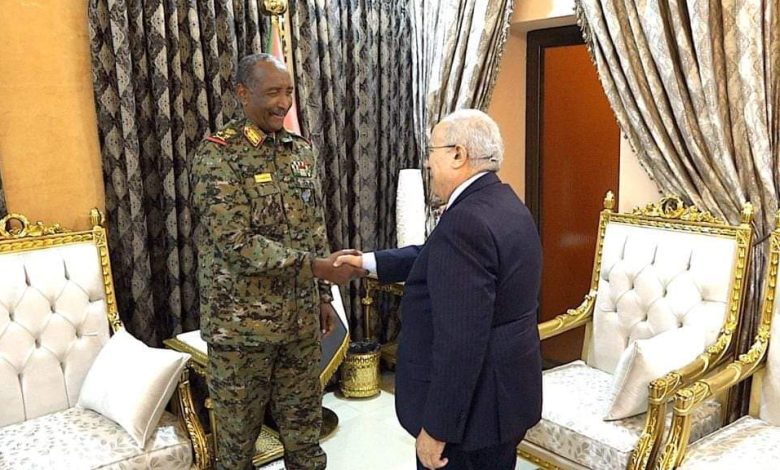Lamamra in Sudan…A Mission Fraught with Hurdles

Report – Sudan Events
The Special Envoy of the United Nations Secretary-General to Sudan, Ramtane Lamamra, has summed up the outcomes of his visit to Sudan, during which he officially launched his mission on the ground, in that he obtained “accurate” and “useful” information about the government position on several files, and he confirmed at the conclusion of the visit ,Sunday, that he will work hard with the parties to crystallize the positive role of the United Nations, and promised other visits and meetings.
The UN Envoy’s visit to Sudan came nine months after the Rapid Support militia rebellion. It also was at the heel of the exit of the mission of the UNITAM in the Sudan, thus raising hopes that it will achieve a breakthrough and an impact based on the “accurate” and “useful” information he received, notwithstanding the obstacles he may face.
Installing the Facts
Lamamra concluded his meetings on Saturday by meeting with President of the Transitional Sovereign Council, Lieutenant General Abdel Fattah Al-Burhan, who briefed him extensively on the violations committed by the Rapid Support Militia but assured him of his commitment to the question of democratic transformation. This meeting was preceded by meetings with the Ministers of Foreign Affairs, Health and other officials, who informed him of important facts regarding the position towards the current situation.
Lamamra’s concluding statements underlined important facts, as he stressed that he learned a lot about Sudan’s realities and aspirations for a better future, as well as “the official point of view of the government of the Sudan” regarding the initiatives aimed at resolving the situation and launching a peace process that leads to the desired peaceful solution that allows the Sudanese people to resume a decent life within an independent, sovereign state that plays its role on the African continent, in the Arab world, and on the global arenas.
Motives for International Action
Observers believe that Lamamra’s mission is fraught with huge obstacles for many reasons, and that he has to shoulder the task of improving the image of the United Nations among the majority of the Sudanese people and government alike. Political analyst Ahmed Musa Omar Al-Mahami believes that the internal crisis left a major external impact and opened the door for interventions because the April 15 war, which unleashed several wars resulting from the intersection of several interests and demands during the current chaos, which makes reading what is behind them important if one desires to search the best path to peace.
In statement to (Sudan Events), he pointed out to the heavy international military, security and diplomatic presence in the Sudanese scene, and said that every state seeks a foothold and works to prevent its enemies from moving comfortably. He argued that those interests need to keep the Sudanese status quo in a way that suits each party’s perception of achieving their interest, considering the required military and security balance at stake.
He stated that this led to the emergence of three groupings: those supporting this option while other favouring another option and a third moving between them according to its interests, and because the war affected the region and threatened international security, it was necessary for the United Nations to move in through the special envoy to be in touch with the challenges closely and suggest solutions, given the previous failure of the UN political mission UNITAMS, in the country.
Obstacles
However, Moussa believes that the envoy’s journey remains fraught with obstacles resulting from the great discrepancy between the positions of the political forces, the strong emergence of the self-interest, and the interference of civil society with the military and the political, which confuses the scene and mix up the cards. He says that the political forces look at solutions from their perspective and do not accomodate other views easily, and the position of the government from the Special Envoy and after him, from the Secretary-General’s position on the rebel Rapid Support Forces, it also creates a state of mistrust and is followed by a state of non-cooperation, which makes the official dialogue fragile and weak unless the personality of Lamamra plays a driving role in improving that image.
He concluded by saying that the envoy’s mission will move between disappointment and attempts to bring about a breakthrough that will improve the picture and bring together the parties to the problem, and that the meetings will be preparatory for future steps, and if a peace process is not later launched, they will work to soften some positions, ease the complications, and support other international-regional efforts to impose a comprehensive peace.This is because the concept of absolute sovereignty is limited by the need for world peace and the preservation of human rights, and between the two ideas, something positive might be achievable.



